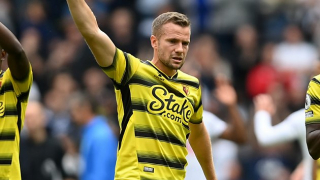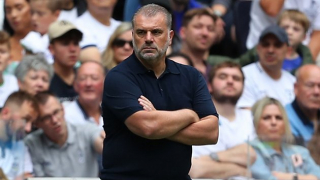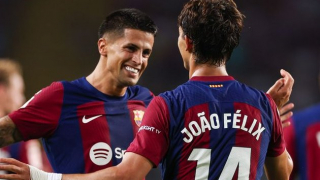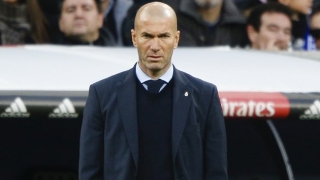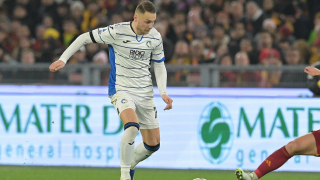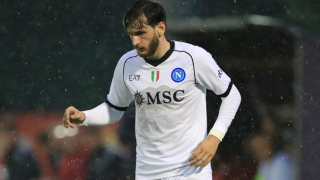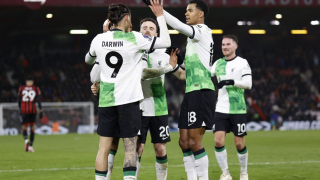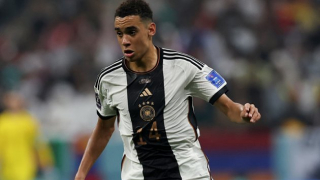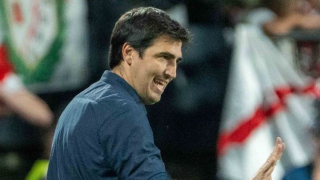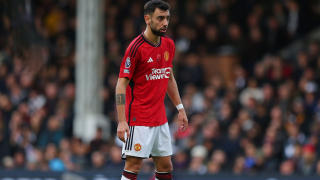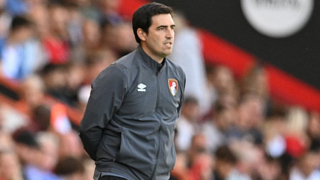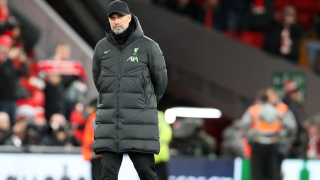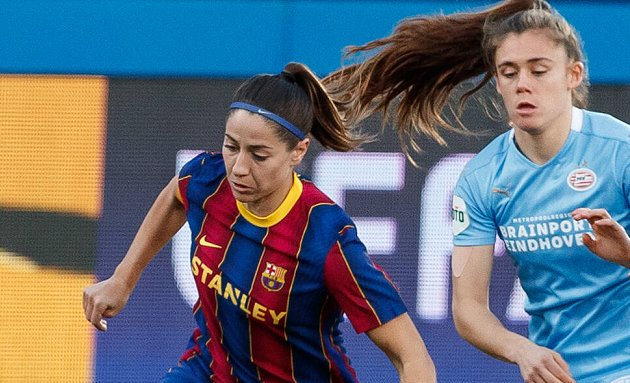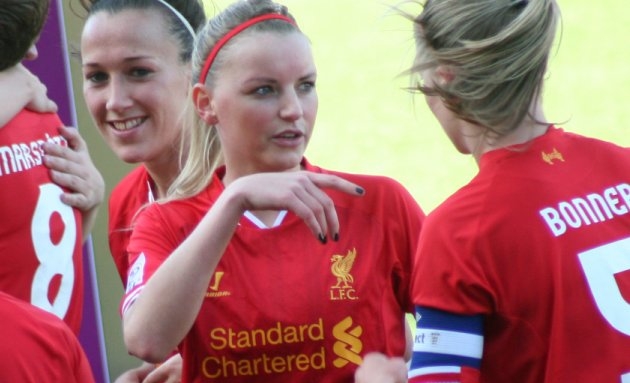This week, TribalFootball.com talks exclusively to Northern Ireland's Women's National Team Coach Kenny Shiels, ahead of the country's play-in matches with an historic first Women's EURO Finals spot next year in England on the line. The team will play England's national team in a closed door exhibition match in Belfast next week while France's Tournoi de France second edition lost two teams because of COVID-19, but the national side will stage two friendlies against Switzerland. We also review the new book by Chris Deeley entitled Forgotten Nations: The Incredible Stories of Football in the Shadow (Pitch Publishing, Worthing, Sussex, U.K., 2020), focusing on the growth of women's football among the non-FIFA aligned teams representing a variety of nations/peoples/areas.
Kenny Shiels leads Northern Ireland to the Brink of a Historic First Women's EURO tournament
Northern Ireland head coach Kenny Shiels has coached men's professional sides in the past at home, in Scotland and in Thailand. He has coached women's football only since taking up the women's national team job of his native Northern Ireland in May of 2019, but what an impact he has made in his year and a half in charge, even in spite of having to deal with COVID-19 impacts through half of his tenure. Shiels has his side on the precipice of a historic first for his nation in qualifying for their first ever Women's EURO Finals in England in the summer of 2022. When asked what he did to propel his side to this historic achievement, finishing two points ahead of favored Wales in Group C behind Norway, he explained, on an overall basis that, for this accomplishment, "We have to pinch ourselves. Northern Ireland is a small nation [with a population of 1.9 Million]. I came in with ideas and tried to provoke enthusiasm and positivity…We wanted a working environment where people are happy. We have achieved that in bucket loads."
He integrated two new coaching hires after he was brought on to join one coach, the physio trainer, the video analysis manager and an administrator who were already with the national team set up, explaining that, "The chemistry of coaches and players has worked a treat. We developed trust; that was significant [and] everyone knew their job on the pitch and off the pitch."
Kenny Shiels is happy with Northern Ireland's advancement in the 2021 Women's EURO Group C. Photo Courtesy of the Irish Football Association.
Reflecting back on Group C for the initial phase of qualifying, he said that there was, "A fear factor in how we played the first and third [Group C] games versus Norway. [Despite a pair of 6-0 defeats to the world power] Learning went on in those defeats and was significant in our development. We attacked and attacked. [We had] created an environment in which there was no criticism where we did something wrong. We took on one of the best teams in the world. I congratulated them in Belfast—we had three strikers and one behind them. The girls played fantastic—I congratulated them but I'm not happy losing 6-0 every game—[but we said] 'Go and attack.'" [The Irish had 8 shots to 25 for Norway in the first Group C game on August 30, 2019 with 2 to 12 for shots on target). Shiels emphasized that that Group C opener set the bar for their attacking approach throughout the tournament, in which they scored the second highest number of goals in the Group (17) ahead of Wales (16), Belarus (11) and the Faroe Islands (1), while Norway scored 34 times in their six games.
I asked Shiels how disconcerting it was that he did not know who his side would be facing during the play-in rounds in April, with delayed matches in other UEFA Women's EURO Groups set for mid-February that will affect the final list of six second place teams playing off for three more spots, and the draw pushed back as well to March, "Nothing surprises during the pandemic; it has been a disastrous year for others." His mantra was to stay flexible and expect changes and, "You have to have the expectation that things would change." He felt that the most difficult thing during COVID-19 was, "Trying to prepare without timelines in sports—we're no different." He felt that the schedule for the play-ins could still be altered, "If groups don't finish, the draw on March 5 will be delayed…we have to prepare. We work subject to fluctuation." He has two players currently in America—starting goalkeeper Jackie Burns is finishing her last 3 months of college and Joely Andrews is in Canada in school at Bishop's University in Sherbrooke, Quebec—and he hopes they will be back for the play-ins and successfully pass all COVID-19 protocols.
Another issue with COVID-19 is that, with a small pool of players, he was concerned about players on either side catching the virus, "It could happen to us but also in Eastern Europe in particular—Czech Republic, Ukraine, Belarus [who they met in Group C]—some countries are not as strict [on protocols] that we could play in the final round. There is a reasonable likelihood that Northern Ireland will have to play Ukraine in the play-in round this spring; Ukraine surprised Northern Ireland's neighbors to the south by knocking the Republic of Ireland into third place in Group I after winning five straight games at the end of qualifying. However, the pairings are subject to some permutations at this point in time with some postponed Group games still to be played.
Shiels had some interesting thoughts on the sport of soccer versus the dominant code in many parts of Ireland—Gaelic Football—referring to the parochialism of the game which is a big part of Tribal Identity in the country. He said that he played Gaelic in the country as a youth while growing up during the Troubles, at a time when playing Gaelic or soccer/football was an identifier of a person's political affiliations, with the later seen as a reflection of support for the current association as part of Great Britain. He did add that he did not tell his parents about playing GAA. He said that Gaelic sports' popularity does reduce the player pool for soccer and that they do lose players to the other football code, particularly around age 14, when players typically, "take only one pathway" for their sporting endeavors. He hopes that with his side's recent success of what they have done, "will have a chance to rub off on people here."
Another challenge he faces is that he has very few national team players coming through from the border areas (around Derry/Londonderry and Newry), which Gaelic Football plays a factor in. The vast majority of his players are based in the local six team Women's Premiership, which has four sides in the Belfast area (Glentoran, 2019 champions Linfield, Crusaders and Cliftonville) and two located in the west of the country (Derry City/Londonderry and Sion Swifts in Strabane in County Tyrone). Shiels explained that these games in Belfast and in the West end up being local derbies. The down side is that, as an amateur league, players have to travel great distances, such as one player who commutes 83 miles each way from Fermanagh to play in Belfast, adding that 'The commitment level from parents is unbelievable."
Shiels has brought in the under-age group players into camps to see how the national team practices, to encourage their development. He would like to see more participation in primary schools for football.
Kenny Shiels overseeing practice for Northern Ireland's Women's National Team—Photo Courtesy of the Irish Football Association.
He said that with the success in the Women's EUROS, "It is phenomenal what has happened. Scotland has fantastic players playing with some of the biggest clubs in the world and they are out [eliminated after two narrow losses to Portugal and Finland in late November/early December 2020] and we advance." Wales is also on the sidelines as the Irish surprised the team that has been knocking on the door of a major finals for the last few years.
We wish Northern Ireland the best of luck in their next round matches, and particularly with Scotland and Wales eliminated; it would be fantastic to see another home nation playing in England in the Women's EURO. Also, the European Championship games are being held in 10 stadium in 8 cities in England—four are in the North in Manchester, Leigh, Rotherham and Sheffield—providing easy travel for Irish fans, should they advance from the play-in round.
Northern Ireland faces England's Women's National Team in a Friendly
Northern Ireland has scheduled a high profile friendly with England's women's national team ahead of the UEFA Women's EURO 2022 playoffs (scheduled for April), which will be held on February 23 during the FIFA international window in Belfast behind closed doors at St. George's Park, the Football Association's training center. This will be the first meeting between the two nations' women's national teams since 2008. Shiels said, "This is a brilliant fixture and a great opportunity for the girls to experience. It's one we look forward to. England have some of the best players in the world and rank right up beside USA, Germany, Netherlands and Norway as the best women's teams in the world."
England Women and Northern Ireland Women first met in September 1982 in a qualifier for the predecessor to the Women's EUROs. They have faced each other five times in Euro qualifiers since then, with England winning each time. The last met in March 2008 for the UEFA European Women's Championship 2009 in Finland. Mourneview Park in Lurgan hosted the match and England won 2-0, with Fara Williams (Reading and with over 170 caps) and Faye White (ex-Arsenal and Ottawa Fury in the now defunct USL W-League and now retired) scoring the goals.
Shiels named a mostly domestic-based squad for the friendly versus England, with 14 playing with Northern Ireland's Women's Premiership teams, seven from England and two unattached at the current time:
Northern Ireland Squad:
Goalkeepers:
Jackie Burns—Glentoran Women
Becky Flaherty—Sheffield United Women (England)
Maddy Harvey-Clifford—Crusaders Strikers
Defenders:
Ashley Hutton—Linfield Ladies
Kelsie Burrows—Linfield Ladies
Abbie Magee—Linfield Ladies
Toni-Leigh Finnegan—Cliftonville Ladies
Julie Nelson—Crusaders Strikers
Ella Haughey—Lisburn Rangers
Rebecca Holloway—Birmingham City Women (England)
Midfielders:
Nadene Caldwell—Glentoran Women
Samantha Kelly—Glentoran Women
Marissa Callaghan—Cliftonville Ladies
Rachel Furness—Liverpool Ladies (England)
Chloe McCarron—Birmingham City Women (England)
Sarah McFadden—Durham Ladies (England)
Ciara Watling—Charlton Athletic Women (England)
Rebecca McKenna—Linfield Ladies
Louise McDaniel—Unattached (ex-Birmingham City of England)
Forwards:
Simone Magill—Everton Women (England)
Lauren Wade—Unattached (ex-Glasgow City of Scotland)
Emily Wilson—Crusaders Strikers
Casey Howe—Linfield Ladies
Northern Ireland will face new England manager Hege Riise's first side as she has replaced Phil Neville, who left to coach Major League Soccer's Inter Miami, and before Sarina Wiegman of the Netherlands takes over after the Olympic Games this summer. The 20 women side is completely comprised of FA WSL players except for Rachel Daly of the 2020 NWSL Challenge Cup winners Houston Dash. Nine are currently with second place Manchester City, with three from league leaders Chelsea, three with fourth place Arsenal, two with fifth place Everton with one each from third place Manchester United and ninth place Birmingham City
England Squad:
Goalkeepers:
Hannah Hampton—Birmingham City
Sandy MacIver—Everton
Defenders:
Millie Bright—Chelsea
Rachel Daly—Houston Dash (U.S.)
Alex Greenwood—Manchester City
Steph Houghton—Manchester City
Chloe Kelly—Manchester City
Leah Williamson—Arsenal
Lotte Wubben-Moy—Arsenal
Midfielders:
Jordan Nobbs—Arsenal
Jill Scott—Everton (on loan from Manchester City)
Georgia Stanway—Manchester City
Keira Walsh—Manchester City
Forwards:
Bethany England—Chelsea
Lauren Hemp—Manchester City
Fran Kirby—Chelsea
Ella Toone—Manchester United
Tournoi de France turns into just two friendlies
The French Federation had to cancel the second Tournoi de France for this month after Iceland and Norway withdrew due to COVID-19 concerns. France will face the other team scheduled for the tournament—Switzerland—in friendlies in Sedan and Metz during the FIFA international window timeframe. The Tournoi de France was one of the first tournaments affected by COVID-19 last year, finishing first ahead of the Netherlands, Canada and Brazil, having to hold some of the latter games with no fans. This reporter watched the tournament and it was the first instance in women's football that I recalled with empty stadiums—the first of what unfortunately became all too common around the world.
Preview of a New Book by British Journalist Chris Deeley on Unaligned Football
This week we review the new book by Chris Deeley entitled Forgotten Nations: The Incredible Stories of Football in the Shadow (Pitch Publishing, Worthing, Sussex, U.K., 2020). Deeley, a U.K.-based journalist, focuses on nations/peoples/areas that fall outside of FIFA for a multitude of reasons. It is a natural successor to the book Outcasts: The Lands that FIFA Forgot by long-time World Soccer writer Steve Menary, which was published in 2007. Deeley explains that "very few of the football teams [discussed]…are from 'proper' countries. There are self-governing states, de facto nations, a smattering of displaced peoples and one bioregion (Cascadia in the Pacific Northwest region of North America) (page 14)." Deeley primarily examines teams participating at London's 2018 CONIFA (The Confederation of Independent Football Associations) World Football Cup. At the time of writing, Deeley said that CONIFA had 51 members across 5 continents (page 21). The 2018 World Football Cup included representatives of Northern Cyprus, Tuvalu, Tibet, Somaliland (in present day Somalia), Matabeleland (in present day Zimbabwe), Karpatalja (ethnic Hungarians in the Ukraine), Australian First Nations Mariya and the Sami people of Northern Scandinavia among others. Many of the squads in these regional and global non-FIFA events involve teams comprised of immigrants/refuges.
The book has some fascinating stories to anyone interested in global culture and geography as well as for the soccer aspects, particularly his chapters on Northern Cyprus and Tuvalu, but we are most intrigued by his subsection on Women's Football (pages 189-192). CONIFA wants to hold a Women's World Cup in 2021 for the first time and has named Kelly Lindsey as their director of women's football. Lindsey is a former U.S. youth national team and full international and first overall draft pick in the 2001 Women's United Soccer Association College Draft (ahead of the inaugural season) by the San Jose CyberRays out of the University of Notre Dame in Indiana. She played in the WUSA until it folded after the 2003 season. She turned to coaching and has been at the University of Texas, University of Colorado and Saint Mary's in Northern California. She coached Sky Blue FC for much of their first season in WPS before quitting late in the year, at which point Christie Rampone became the player coach and guided the team to the first WPS Championship. She began as a volunteer head coach of the Afghanistan Women's National Team in 2016. In January of 2020 she was named as the women's football director of the Moroccan Football Federation.
Deeley quoted Lindsey when she discussed her appointment with CONIFA, "From the moment I spoke to Paul [Watson, CONIFA's Member Development Director]…I knew this was a unique group of people who saw past a 'top-down' governing and were open to being connected to the member associations and working closely on some unique challenges and goals. When we can work directly with our members and be connected to the work at grassroots level, we can build a foundation for success that the teams, coaches, leaders and associations can feel pride in. The women's game has so much growth potential—and the game transforms lives. Football builds character and confidence and gives the courage to pave new ways for women. It's an honour to have the ability to build the place and space for more women to be educated through the game for the betterment of their lives as leaders, engaged citizens and change-makers of their unique communities. I look forward to working with CONIFA to build something uniquely special for the women's game (Pages 189-190)."
Lindsey further explained her vision, "I hope to bring leadership that CONIFA members and women's programmes around the world turn to for knowledge, advocacy and development….I aim to ensure we develop the game from uniquely local perspectives, because there are no two teams, countries or associations alike….The cultural, social, economic, physical and mental challenges women face are far beyond the depths of the men's game. Thus the way we view the development and growth of the sport needs to be pursued on a more micro level (Page 191)."
The first women's games under CONIFA took place in 2019, with Northern Cyprus hosting FA Sapmi (Sami people's team) but falling 4-0 in the Women's Friendship Cup. Interestingly, in March of last year, two CONIFA members—the Pacific Island nations of Tuvalu and Kiribati—were accepted as Associate Members of the Oceania Football Confederation. The OFC will provide funding and include the two nations in upcoming regional tournaments, anticipated to begin in 2021. The two Football Associations are expected to receive $18,000 each from the OFC for footballing activity.
Deeley's book is a delightful read, though the excessive cursing could be a barrier for some readers. It will be interesting to watch future CONIFA tournaments, particularly for their efforts on the women's side. The 2021 women's tournament could be delayed as so many individuals and organizations are still struggling with balancing finances as a result of the COVID-19 pandemic. Though 'unofficial' in FIFA's eyes, CONIFA members care about football's development. On the women's side, selecting an experienced and well respected coach in Kelly Lindsey to head up the efforts of the global body is an excellent decision.
Tim Grainey is a contributor to Tribal Football. His latest book Beyond Bend it Like Beckham on the global game of women's football. Get your copy today.
Follow Tim on Twitter: @TimGrainey

